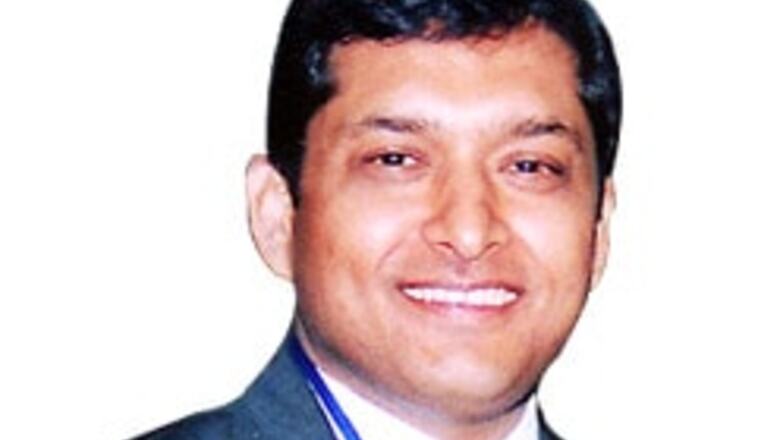
views
What will P Chidambaram have for students in this Budget? Will there be changes in the education policy?
Will higher education become cheaper or dearer?With 'Sarva Shiksha Abhiyaan' generating lukewarm response, what will the government do for rural education?
In order to get the answers to all of this, IBNLive.com organised an online chat with Kamal Wadhera, CEO, Top Careers & You (TCY), an education services company. The company serves national and international students, through classroom teaching, and online mode; from K-12 to students preparing for competitive exams.
Raghav: Given the meagre resources, what would you think is the priority for the education sector? Higher education or better education opportunities in rural India?
Kamal Wadhera: Both, with more weightage to the latter since the former would have more avenues for funding/investment and would have many takers.
Robinson: What do you think should be done for promoting the efficient students from villages to aim at IITs and IIMs and provide them financial assistance according to their capabilities and performance?
Kamal Wadhera: NSS has 750 crore allocation although I'm not very sure whether this category falls under this.
Ramprakash Saxena: Does the education cess trickle down back into education at all? If we have any benchmarks on its success and if proven a failure, we should probably do away with it?
Kamal Wadhera: As I mentioned earlier, accountability is definite an issue. My guess is once the govt is serious on this, it can be tackled as well. It's not the money that would work by itself. It's the people who're executing projects with these resources.
Chetan Bhagwat: I am looking to pursue my higher studies abroad at the Masters level in the US, could you kindly guide me as to what I could expect from the Budget in terms of student loans and related issues?
Kamal Wadhera: Both secured and unsecured lending are likely to be softer this time with a liberal moratorium period.
Rajesh: Do you think private firms should encourage interest subsidy on education loans?
Kamal Wadhera: Depending upon the supply side, they may eat up this cost.
Sandeep: Shouldn't self-financing schemes be made easier for students who want to pursue higher studies?
Kamal Wadhera: Financial institutions are making it student friendly by the year. More credentialed the college/university, the easier it is to get loans.
J S Sandhu: What is your take on the nursery admission scenario? Are you happy with the Ashok Ganguly committee report?
Kamal Wadhera: They have simplified the procedure but yes, the desired results are far from expectations.
PAGE_BREAK
Latha: Do u think such capitation fee in private universities is justified?
Kamal Wadhera: It's simply demand-supply situation. If the student doesn't get value for money, they won't survive and the other players would take over.
J S Sandhu: There are many universities where teachers don’t turn up for days on end. The fate of the students is anybody's guess. What do you think should the govt do?
Kamal Wadhera: Immediate accountability and harsh punishments for defaulters.
Mukesh: With private educational institutions mushrooming throughout the country in large numbers, do you think there should be some tax system? The government can make good amount of money from that.
Kamal Wadhera: It's going to be the survival of the fittest now. Every year more efficient institutions are filling the capacities and the rest are unable to fill their capacities, hence would fade away.
Arijit: I am pursuing my post-graduation and I have taken loan from the bank. I am also working. Do you think there should be any tax rebate on that since I am studying and working?
Kamal Wadhera: The govt may encourage easier access to loan for education by simplifying procedures but rebates seem unlikely.
Sanjay: Education being the prime focus of the government, what new things do you think this Budget would bring in this sector?
Kamal Wadhera: More emphasis on vocational training and curricula aligned to industry requirements, knowledge foundations for dissemination of practical knowledge to name a few.
Snigdha: Do you think Mr. Chidambaram would have any news for private universities?
Kamal Wadhera: Since the immediate talent pool requirement for the industry is small, some sops seem likely for them.
Jitesh: Do you think China can pose as a threat to us in terms of education in the near future?
Kamal Wadhera: I don't think so. Both can thrive.
Dev: What lies ahead for education sector in this Budget? Does the FM have something in his mind about the education sector? What’s your thought?
Kamal Wadhera: We badly need high-quality manpower to sustain this growth. So allocation in primary, higher, vocational sectors is likely to be higher.
Sandeep: Some time back, the PM had said that the country needs more IITs and IIMs. Does India actually need more such schools where basic education is not available to all? Should the govt be spending money on setting up such schools? Most who pass out from here anyway go abroad in search of greener pastures, so what is the point?
Kamal Wadhera: I think now the reverse brain drain has already begun. So we must start more of these schools soon. Also to sustain 9 pc + growth, we need more talent in the market place. If we create surplus over and above 9 pc, which seems likely, that can be invested in basic education. So two-edged benefits.
PAGE_BREAK
Rahul: The education cess has been increased from 2 pc to 3 pc. Do you think this Budget will bring some relief in this cess? What options lie before the FM?
Kamal Wadhera: Doesn't seem likely as the govt still trails in the numbers they have set for this.
Ravi: How can interest be revived in the education sector? How can the govt ensure that students are pursued to do research and quality work?
Kamal Wadhera: Simply by making it demand driven, making the curriculum industry driven and encouraging the best brains to join this sector.
Jitesh: Don't you think higher education should be subsidised?
Kamal Wadhera: Already it's subsidised to a large extent for private higher education. If the costs are high, payback probability and payback periods are also attractive and then you've easy access to fund it with good moratorium period.
Manav Dhingra: Is the government trying to implement the charter of making it mandatory for all doctors , management graduates & engineering graduates having passed from govt-funded low-priced institutions to serve in villages for 2 years compulsory. This makes sense.
Kamal Wadhera: Some states have taken this initiative and others may follow suit.
Anupama: There are many schemes and facilities for students, but many of them are related to professional courses and not every one can afford it. So, would this Budget have any provisions for the common people (students) for graduates who would like to do some thing further?
Kamal Wadhera: Under vocational programmes, some initiatives under PPP are coming up.
Subhadarshi Tripathy: Any policies for private universities?
Kamal Wadhera: They shouldn't become degree replication machines. Increased emphasis on quality and these universities should be encouraged to deliver to the educational needs of the rural areas as well.
G K Kashyap: The Sarva Shiksha Abhigyaan has not been a major success, though funds have never been a problem. How do you think the FM will address this issue in the coming Budget? The education cess has been increased from 2 pc to 3 pc (the additional 1 pc for funding higher education); is cess the only option available with the govt and has it paid off?
Kamal Wadhera: You are right. But I feel measuring the success of SSA over this short period may be too early. Investments in education have long gestation period. As per the set target of approximate 6000 cr, the govt feels it'd reach 5000 cr. So from that standpoint a shortfall is there. The target is to reach at 6 pc of GDP level whereas we're a little below 3 pc. For the effectiveness, strict monitoring and administration are definitely the need of the hour.



















Comments
0 comment